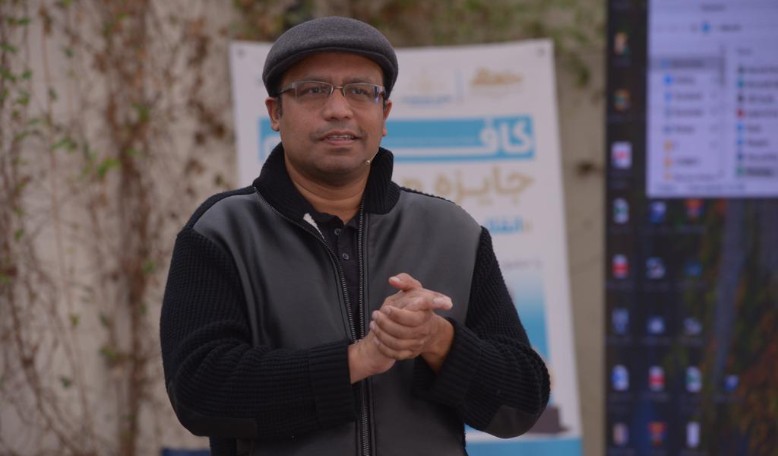Mustafa(Pbuh) Prize laureate: ‘Do not lose hope during academic journey’
Bangladeshi laureate of the 2021 Mustafa(Pbuh) Prize gave a speech on his academic journey during the Mustafa(Pbuh) Prize Science Café held on October 22, 2021.
MSTF Media reports:
Zahid Hasan, Eugene Higgins Professor of Physics at Princeton University and a 2021 Mustafa
Prize laureate for “Weyl fermion semimetals,” talked about his academic journey for enthusiasts and students.
Held in a friendly atmosphere, the last Mustafa
Prize Science Café of the 2021 Mustafa
Prize week was held by the Mustafa
Science and Technology Foundation (MSTF) with the presence of Zahid Hasan and Mahdi Kargarian.
Hasan started his speech by recounting the journey of his attraction to science since his childhood.
He said that as a child, his curiosity to figure out how the things in the world work led him to realize that “a hidden world of forces controls things.”
“So I found out that invisible forces control the universe, that there are invisible abstract rules and laws governing it,” he continued, adding that a fascinating dimension of science is that it can be predicted.
“I started to appreciate the abstract beauty of ideas at about the age of nine,” he said.
As Hasan said, in order to be a scientist, one has to “work hard,” and in order to be able to work hard, one has to get fascinated with something. “This is the fundamental rule of becoming a scientist,” he noted.
Explaining how he decided to make a balance between theory and practice in his field of study, he said “Early in my career, I was fascinated only with abstract concepts, but later I decided to become more pragmatic in my studies.”
“I figured out that I need to find applications for discoveries, and connect them to real life,” he continued.
“I worked on non-string quantum gravity for my undergraduate research under the supervision of Steven Weinberg,” he said.
Afterwards, “I did 2 years of engineering, but then switched to applied physics,” he added, noting “I became successful in experimental physics because of my early involvement with theory.”
Hinting at his failures in his academic journey, he said that he was fascinated by being a student at Princeton University due to its link to Einstein, but he got 2 rejections from this university. “In the 4th year of doing my PhD, Princeton University untimely offered me a faculty position,” he said, adding “I learned so much from this experience.”
He emphasized the importance of mental health in doing science, noting that “having side interests” during this journey helps a lot.
“My side interest is reading about world history, culture, comparative religion, and neuroscience,” he said.
Hasan mentioned “epistemology” as one of his favorite topics, noting that through this he found out that “absolute truth in science is just a fiction.”
“My main interest has always been understanding the universe, not just being a scientist,” he highlighted, saying that he has never wanted to be an “orthodox” scientist, but an “open-minded” scientist.
He advised the young generation who want to be scientists, to “connect with mentors and role models.”
“Build a mentorship relationship with them,” he clarified, adding “I also recommend you to be part of a peer group who share your fascination.”
According to Hasan, following role models and joining a peer group helps young researchers to “discover their strengths and weaknesses” which is crucial for self-development.
He also suggested them to “keep an optimistic attitude” and “not to lose faith and hope in academic journey.”
At the end of his talk, Hasan recommended some books on different topics to the audience upon their request.
Mehdi Kargarian, another speaker of this meeting from Physics department at Sharif University of Technology, gave a lecture on Zahid Hasan’s contributions.
He accompanied his talk with doing an experiment with the participation of the audience in order to show how ‘topology’ works.
He first gave an introduction to Zahid Hasan’s trajectory to topological materials.
During his speech, Kargarian emphasized that “Zahid has social impact on Bangladeshi scientific community.”
He talked about condensed matter physics, stating “Now is the golden age of condensed matter.”
Kargarian touched upon material designs in the past, present, and future; presented a history of discovery of materials; and explained how Zahid Hasan has discovered new material in his lab.
Lauding Zahid Hasan’s significant contributions, Kargarian said “I’m a theorist, I just do calculations. But Zahid’s discoveries confirm the outcome of our theories, especially the use of topology.”

